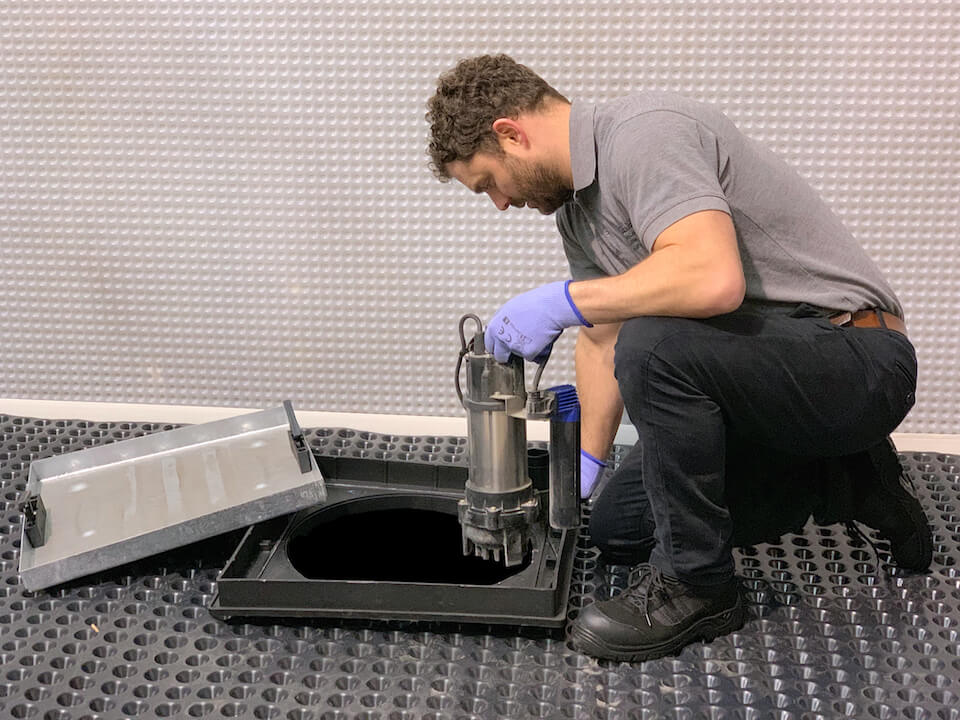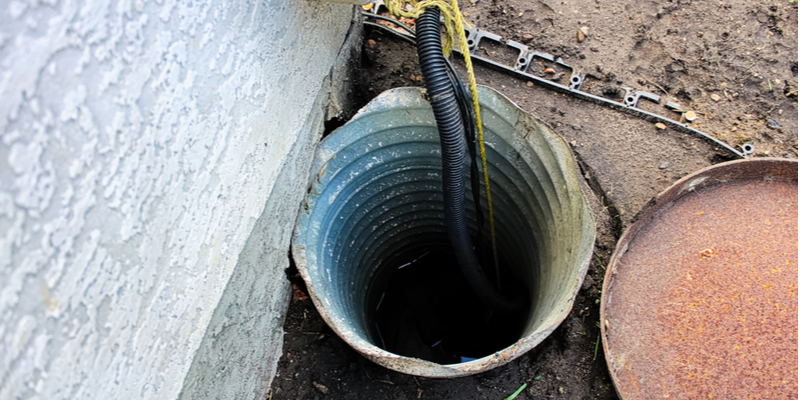Straightforward Tips for Taking Care of Your Sump Pump
Straightforward Tips for Taking Care of Your Sump Pump
Blog Article
The publisher is making a few good pointers on Steps to Cleaning Your Sump Pump Properly as a whole in this post below.

Sump pumps are crucial parts in several homes, especially in locations prone to flooding or too much dampness. They help avoid water damages by successfully getting rid of excess water from cellars or crawl spaces. Nonetheless, like any other appliance, sump pumps call for regular upkeep to guarantee they work efficiently when required one of the most. Cleansing your sump pump is a crucial part of its maintenance, and comprehending just how to do it properly can conserve you from expensive repair services and possible calamities.
Introduction
Preserving a clean sump pump is essential for its correct performance and long life. Overlooking this crucial task can cause blockages, malfunctions, and eventually, water damages to your property. Therefore, finding out how to clean up a sump pump is important for home owners that count on these devices to maintain their basements completely dry and protected.
Signs of a Dirty Sump Pump
Understanding when your sump pump needs cleaning is essential for avoiding potential breakdowns. Some common signs that indicate an unclean sump pump consist of odd noises throughout operation, lowered water flow, and noticeable debris in the pit. If you see any one of these signs, it's necessary to clean your sump pump immediately to avoid any more problems.
Getting ready for Cleaning
Prior to you begin cleansing your sump pump, it's necessary to take some safety and security precautions. Start by turning off the power to the pump to stay clear of any electric crashes. Furthermore, use proper safety equipment, such as handwear covers and safety glasses, to safeguard yourself from dirt, particles, and potential microorganisms.
Understanding the Sump Pump
Prior to diving right into the cleansing procedure, it's essential to have a standard understanding of just how a sump pump works. Usually installed in a pit or container below the cellar flooring, a sump pump contains numerous vital parts, including a pump, a float switch, and a discharge pipe. When water collects in the pit, the float button triggers the pump, which after that pumps the water out with the discharge pipeline, away from the structure's foundation.
Step-by-step Overview to Cleaning Up a Sump Pump
Shutting Off the Power
Begin by disconnecting the power supply to the sump pump to avoid any kind of accidents while cleaning.
Checking for Correct Performance
Before reinstalling the pump, execute a quick examination to ensure that the float button triggers the pump appropriately. Pour some water right into the sump pit and observe the pump's operation. If every little thing is working correctly, you can reconstruct the pump and reconnect the power supply.
Eliminating Debris and Dirt
Use a container or a scoop to remove any type of visible debris, dust, or debris from the sump pit. Dispose of the debris properly to prevent it from obstructing the pump or the discharge pipe.
Cleaning up the Pump and Float Switch
Once the pit is clear of debris, carefully remove the pump from the pit. Inspect the pump and the float switch for any indications of damages or wear. Make use of a soft brush or fabric to clean the surfaces and remove any accumulated grime.
Purging the System
After cleaning the pump and float button, purge the sump pit with tidy water to get rid of any kind of staying dust or debris. This will assist make certain that the pump runs smoothly and efficiently.
Upkeep Tips to Maintain Your Sump Pump Clean
Along with periodic cleaning, there are several maintenance pointers you can follow to maintain your sump pump in ideal problem:
Conclusion
Cleansing your sump pump is a critical aspect of its upkeep and makes sure that it operates successfully when you need it one of the most. By following the steps detailed in this overview and integrating regular upkeep into your routine, you can extend the lifespan of your sump pump and secure your home from water damages.
6 STEPS ON HOW TO CLEAN A SUMP PUMP PROPERLY
UNDERSTANDING SUMP PUMPS
Your sump pump plays a crucial role in protecting your home by managing and removing excess water. It primarily functions as a “shield”, guarding your basement against the damaging effects of water accumulation. The pump is housed in a sump pit in the lowest part of your basement, and its job is to pump out any water that collects there.
During heavy rainfalls or when snow melts rapidly, water can infiltrate your basement, posing potential risks like flooding, structural damage, and harmful mold growth. Here, the sump pump springs into action, pumping out the intruding water and directing it away from your home.
SAFETY FIRST
Before cleaning, remember to prioritize safety. Disconnect the sump pump from the power source to prevent any accidental electric shocks. Also, wear sturdy gloves to protect your hands from any sharp or dirty components within the pump.
REMOVE THE SUMP PUMP
After ensuring your safety, the next step is to remove the sump pump from its pit. Doing this might require careful maneuvering as you don’t want to damage any pump components. Once removed, clean the sump pit to remove any accumulated debris or sludge.
INSPECT THE PUMP
Inspect the pump for any visible signs of wear or damage. Check the power cord, float switch, and impeller housing. If any components look worn out or damaged, consider replacing them to ensure optimal performance.
CLEAN THE PUMP
Thoroughly clean the pump with warm, soapy water. Make sure to rid it of any dirt, gravel, or other debris that might impede its performance. You can use a toothbrush to clean the small, hard-to-reach parts of the pump.
REINSTALL THE SUMP PUMP
Reinstall the pump into the sump pit Make sure it’s positioned correctly to remove the water effectively Once it’s back in place, reconnect it to the power source TEST THE PUMP
Finally, pour some water into the pit to ensure the pump works correctly. It should start automatically and begin pumping out the water; if it doesn’t, check the power source and the positioning of the pump.
Remember, while cleaning your sump pump is an essential part of home maintenance, hiring a professional plumber for a thorough inspection and cleaning at least once a year is also important. This will ensure that your pump is in optimal condition, ready to protect your home from potential water damage.
BEST PRACTICES FOR CLEANING SUMP PUMP DISCHARGE PIPES
Regular Inspection: Regularly inspect your discharge pipes, especially during heavy rainfall or snowmelt periods. Look for any signs of blockage or damage. Early detection of problems can prevent serious issues down the line. Periodic Cleaning: Over time, sediment and debris can accumulate in the discharge pipes, impeding the flow of water. Regular cleaning helps keep the pipes clear and functioning efficiently. You can use a high-pressure water jet to effectively clean the pipes. Insulation During Winter: In colder climates, discharge pipes can freeze, blocking the outflow of water. Protect your discharge pipes from freezing temperatures by insulating them with foam pipe insulation. This will ensure the sump pump can continue to discharge water even in freezing conditions. Proper Positioning: The discharge pipe should be positioned to direct water away from your home’s foundation. Improper positioning can lead to water seeping back into the basement. Ensure the pipe is long enough and angled correctly. Installation of a Check Valve: A check valve prevents water from flowing back into your sump pit after the pump has pushed it out. Installing a check valve helps maintain the efficiency of your sump pump and reduces the risk of flooding. Minimize Pipe Turns: Every curve or turn in the discharge pipe can decrease the efficiency of water flow. By minimizing turns and bends in your discharge pipe, you can increase the efficiency of your sump pump. https://www.fullspeedplumbing.com/how-to-clean-a-sump-pump-properly9999/

We were made aware of that article on Keep Your Sump Pump Clean, It'll Keep You Dry through someone on another web blog. Loved our review? Please quickly share it. Help somebody else find it. Kudos for your time. Return soon.
Call Today Report this page